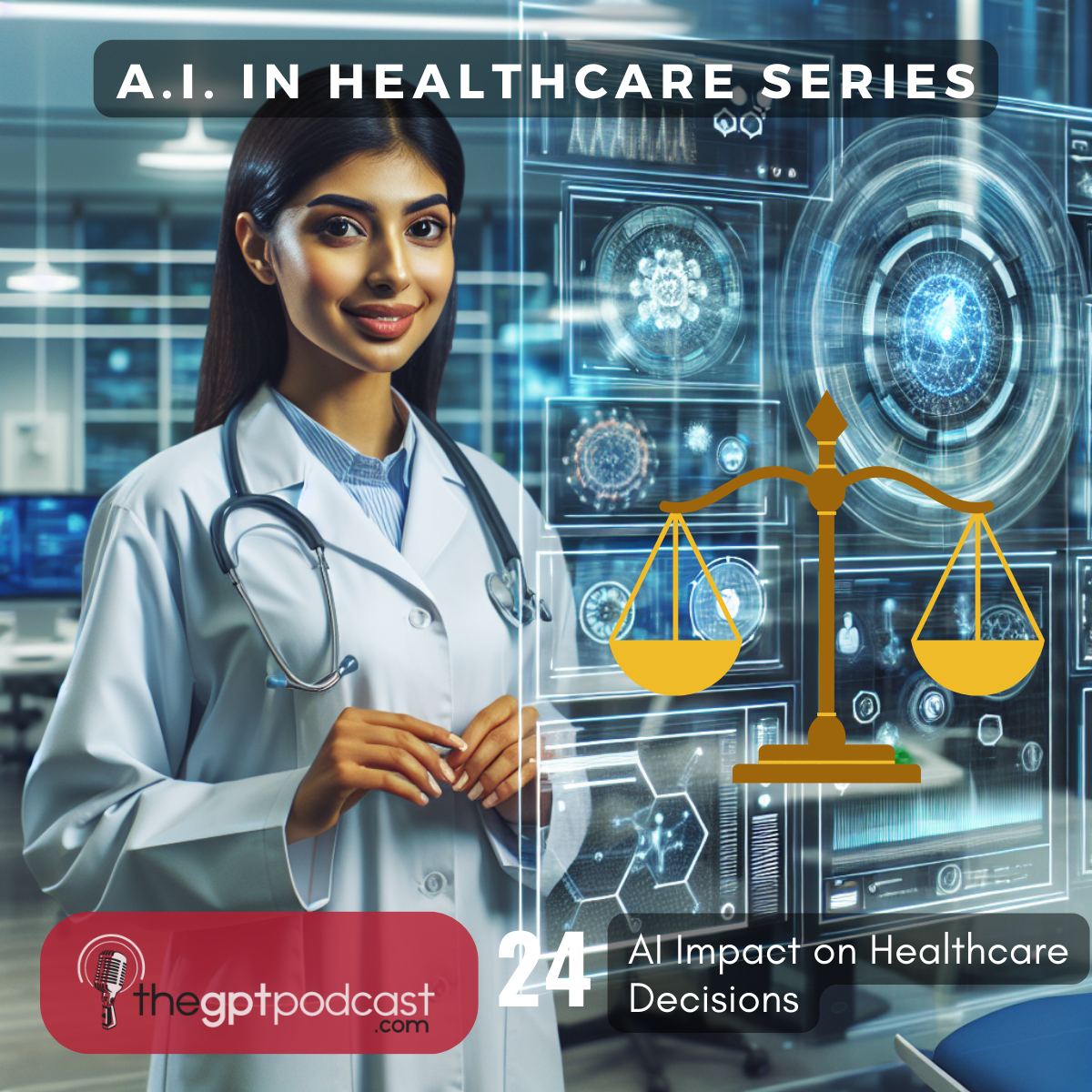AI Impact on Healthcare Decisions
🎙️ In the GPT Podcast's AI in Healthcare Series, Dr. Castro and Brooks discuss 🚑 AI's role in healthcare decisions and the discussion emphasizes the need for human clinicians👥 in decision-making and laws⚖️ to responsibly manage AI's influence in healthcare. 👩⚕️🤖🩺

Welcome to our continuing series on AI in Healthcare. In this edition, we delve into an increasingly relevant and controversial topic - the role of artificial intelligence (AI) in making serious healthcare decisions.
For many years, behind-the-scenes decisions about medical coverage were dictated at health insurance companies. However, the landscape is shifting, with certain life-altering choices now allegedly being driven by AI algorithms. This shift, though intriguing, raises several serious concerns that warrant careful scrutiny.
Two families recently filed lawsuits against UnitedHealth Group claiming that the insurance company used AI to deny or curtail rehab stays for two elderly men before they passed away. The lawsuit highlights a growing concern; the accusation is that UnitedHealth's AI system is making "rigid and unrealistic" judgements about patients' recovery journey from significant illnesses, denying them access to necessary care in skilled nursing and rehab centers.
The suit emphasizes that the AI technology is overruling doctors' recommendations for patient care, even when this action is indefensible. More than 90% of patient claim denials were overturned either through internal appeals or a federal administrative law judge according to court files. However, only 0.2% of patients opted to challenge the algorithm's decisions, indicating a potential deficit in the AI's decision-making abilities.
The families are alleging that the AI system may be causing more harm than good. For instance, warranty of rehab coverage for a 91-year-old man who fell and broke his leg and ankle was terminated after only three weeks, despite his doctor's recommendation to continue physical therapy. His family was left with a crushing monthly bill of $12,000 to $14,000 for his therapy for nearly a year.
Similar instances of automated claims rejections have been flagged in cases against other insurance companies like CIGNA Healthcare, suggesting this could be part of a wider issue in the insurance sector.
The legal position of AI use in the healthcare industry is currently relatively gray. AI litigation is a burgeoning field, and the attention is slowly shifting towards the use of emerging technology in various domains, including healthcare. The lawsuits filed against UnitedHealth and other similar cases underline the imperative of keeping a 'human in the loop'.
Although AI has the capacity to process colossal amounts of data and could thus be beneficial, it lacks the discernment and common sense decision-making that human clinicians provide. A report from the Center for Medicare Advocacy states that AI programs often make more restrictive coverage decisions than would have been made by humans.
AI is increasingly integrating into every facet of human life, and as such, we must critically evaluate its potential implications, especially in sensitive areas like healthcare. Establishing legal frameworks and ethical guidelines that prevent overriding patient care for business interests seems to be the next vital step.
Stay tuned to this space as we continue to explore this complex field, bring to the fore the nuanced pros and cons of AI in healthcare and call for more responsible and safe decision making. Until next time, take care!

